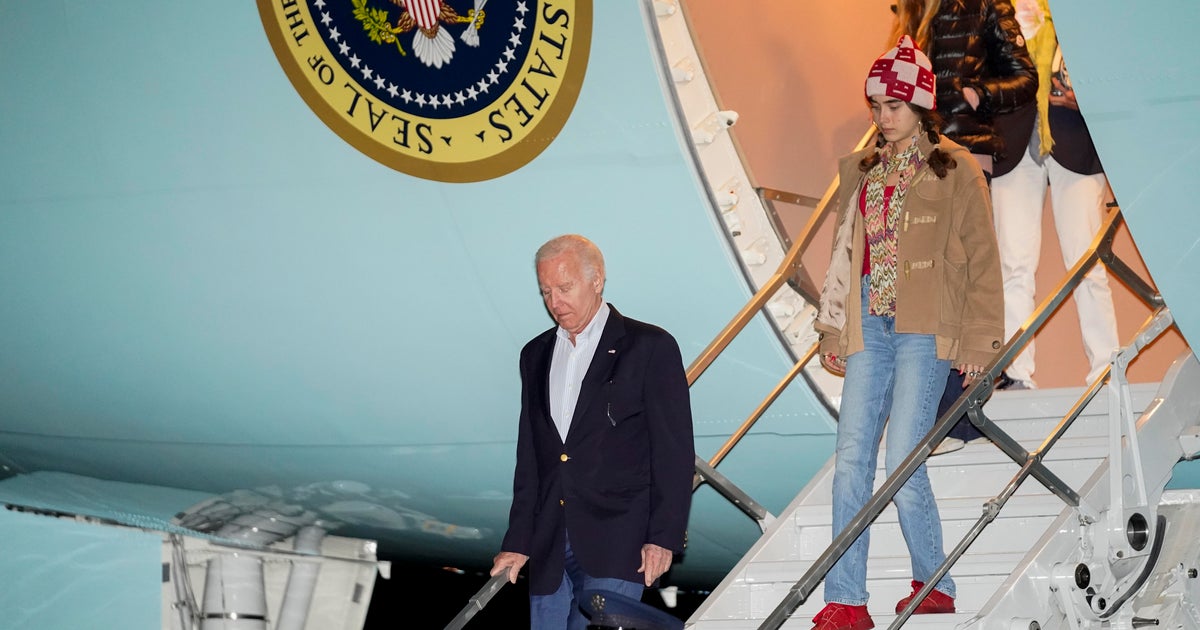Bernie Sanders wades into Nevada's acrimonious charter school debate
Nevada's powerful teachers unions are applauding Vermont Sen. Bernie Sanders' new education plan, which would put a moratorium on charter schools and end funding for for-profit charter schools nationwide. But Sanders' stand against charter schools also puts him in the middle of an acrimonious debate in this important caucus state.
Nevada has been in the middle of boom for charter schools, with enrollment more than doubling to over 50,000 kindergarten through 12th grade students in recent years. But Nevada Democrats, backed by teachers unions, tried earlier this year to put a moratorium on the formation of new charter schools -- a move that charter school allies say caught them blindsided.
"It was not the result of discussions with various stakeholders, including charter school leaders. So it came as quite a surprise," Pat Hickey, executive director of the Charter School Association of Nevada, told CBS News.
"So naturally we mobilized charter school principals, school leaders, students, parents, and teachers to communicate how important the charter schools were to them."
Proponents insisted the moratorium was not "anti-charter," merely a "pause" while authorities researched their impact. They also said Nevada has done little to ensure accountability in the state's charter schools.
But facing an uproar of bipartisan opposition at hearings, in opinion pieces, and on the airwaves, lawmakers this month retreated from the new charter ban.
Sanders is the first in the 2020 field to campaign on shuttering for-profit charter operators, a call that Massachusetts Sen. Elizabeth Warren appeared to back Sunday. The candidate has also pledged to fight for toughening accountability on charter schools and blocking federal funds for any new charter schools, pending "a national audit" on their growth.
Union leaders in the state welcomed Sanders' plan. "We were very happy to hear that at least this is now being addressed at a national level," Ruben Murillo, president of the Nevada State Education Association, told CBS News.
Nevada is a key caucus for Democratic candidates as the third of the presidential contests and the first west of the Rocky Mountains. With its influential labor unions, the state is an early test for candidates looking to win in neighboring California on Super Tuesday.
While most of America's charter schools are headed by nonprofit boards, their day-to-day operations are sometimes run by for-profit management companies. The Sanders campaign says they would prohibit both for-profit charter schools and those "being operated by a for-profit entity," which accounts for an estimated 45 percent of all charter school enrollments nationwide.
"If a school is being run by a for-profit entity and claiming to serve the interests of students, they should have no problem changing their business model," a spokesperson for Sanders' campaign told CBS News in a statement.
His proposal draws a sharp contrast with the Obama administration, which often championed charter expansion, and fellow White House hopefuls like New Jersey Sen. Cory Booker, who once urged fellow Democrats to "have the political will to stand up" for charter schools.
"As president, Cory will drive massive investments into our public schools and fight to improve pay and support for our teachers and other public school employees," Booker campaign spokesperson Sabrina Singh told CBS News.
"Cory supports high-quality public schools, including high-performing nonprofit public charter schools where local communities have determined that those schools are instrumental to providing their children access to a great public education."
At a National Education Association conference in 2016, Hillary Clinton drew cheers for vowing to block those pushing "for-profit charter schools on our kids." But teachers at the national union event booed the former secretary of state for suggesting charter schools and traditional public schools could share ideas on "what's working."
"We've got no time for all of these education wars," she insisted.
Support for charter schools has plummeted among Democrats nationwide. But among Democrats in Nevada, so-called "school choice" groups say polling suggests over two-thirds actually support them.
These groups reject accusations that Nevada's charters are unaccountable, citing under-performing schools that have been put into receivership or shuttered. And while Nevada's schools often score at the bottom of the state-by-state rankings, on average state-sponsored charter schools are among the highest performing in the state.
Critics of the charter school boom point to Nevada's dismal average pay for teachers: 17.5 percent less in "combined wages and benefits relative to comparable workers."
"The issue with Nevada's school system is divestment, an issue that Senator Sanders will address by making transformative investments in our public schools," says the Sanders campaign.
Proponents of charter schools, meanwhile, say they act as a "safety valve" in urban areas.
"In Nevada, that whole argument that it's taking students and money away, it doesn't apply as much," Hickey argues.
"In districts like Reno and especially Las Vegas, where there's already such overcrowding in classrooms, charter schools are a safety valve for the growth in these districts."
But Murillo says that many of Nevada's charter schools still only perform as well as the public schools they compete with. They point out that many of the state's most successful charters serve fewer of Nevada's poorer students and students learning English.
The union fears "deliberate and well-funded efforts" backing the explosion in charters, which sometimes take over or compete with struggling schools, is undermining support for public education in Nevada.
"You know, when we have a Democratic majority in our state senate, a super-majority in our assembly, and a Democratic governor, but we can't get a charter school moratorium passed?" said Murillo.
"It's not just that the charter cap amendment was not addressed, it's that it was done by Democrats. For us, that's what really hurts."



